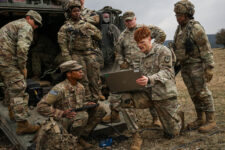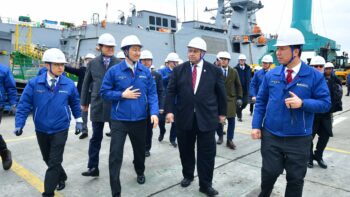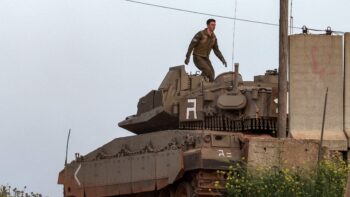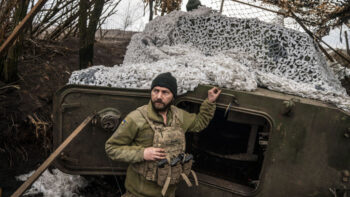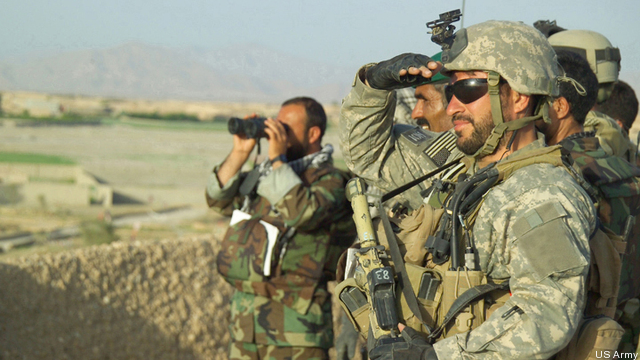
The commandos came under the cover of darkness. It was mid-February in Laghman province, just east of Kabul in mountainous eastern Afghanistan. A team of U.S. Army Special Forces swept in together with an elite unit of the Afghan police, known as the Provincial Response Company. But this time the target was not a Taliban. This time the Green Berets were helping the Afghans take down one of their own, a government official named Nangyalai.
The former sub-governor of Laghman’s Alingar district, Nangyalai had been tried, convicted and sentenced to five years in prison in absentia by an Afghan court for stealing everything from government-issue weapons to 150 bags of wheat. Just getting a conviction is a minor triumph amidst Afghanistan’s chronic corruption. Getting an arrest is extraordinary. But nabbing Nangyalai (who, like many Afghans, goes by only one name) is just one small victory in long and largely unsuccessful struggle to build an Afghan ally the Americans can trust to take over when they’re gone.
Nangyalai was hiding out in Laghman when the American commandos and the Afghan Provincial Response Company (PRC) tracked him down. “He was pissed,” one Special Forces officer says. As the troops hauled the captive away, he “threatened to have everyone killed.” Brought in to the Laghman police station, Nangyalai also accused his captors of stealing gold from his home and assaulting the women in his household. But the Americans had cameras on their helmets that had recorded the arrest and showed that no theft or assaults had taken place. “We played the helmet cams and he ceased those accusations,” the Special Forces officer says.
One down, how many thousands to go? “There’s corruption at every turn, which is frustrating,” says Lt. Col. Isaac Peltier, commander of Special Operations Task Force 10, whose commandos train Afghan troops and include the Special Forces detachment in Laghman. Peltier says Afghan officials routinely use police forces to pursue their own personal agendas. Corrupt officials also steal government supplies, including arms and equipment destined for the special police. “A lot of equipment comes to the province and is supposed to make its way to the PRC,” he said, “but stuff gets siphoned off.”
Anti-corruption laws are already on the books in Afghanistan. Education and enforcement are the problems. ISAF has assigned advisers to Afghan government agencies, encouraged better record-keeping and helped guard Afghan investigators, prosecutors and courts. In addition to training and leading the special police, Peltier’s commandos coordinate the writing of arrest warrants, oversee evidence-processing and offer protection to Afghans within the legal system who might be threatened for their roles in enforcing law.
Many Afghans simply don’t know better than to fall back on corrupt practices: They’ve never known an alternative. Many Afghan guards, cops, and soldiers are underpaid, partially as a result of their commanders skimming off cash from payroll accounts. There’s a trickle-down effect as low-level troops must solicit bribes or do their own petty thieving to make up for lost wages. Indeed, even their commanders might be motivated to steal after being shorted by officials still higher up the chain of command.
ISAF has worked hard to reform pay practices, with modest results. Direct deposits or electronic money transfers are impossible for most Afghans, as they do not have bank accounts. Money must move in cash form, making it susceptible to theft and fraudulent record-keeping. Even banks are no panacea: Afghan financial institutions themselves have been accused of massive fraud benefiting senior government officials.
In Afghanistan formal institutions such as banks, police and courts are under-developed, but traditional bodies – the non-binding shura councils and the decision-making jirga groups, for example – are highly refined and widely-respected. It would be quicker and more lasting to embed reform efforts in the shura and jirga, the Special Forces officer says: “Let’s work within the legal framework that already exists.” But foreign advisers aren’t adept at navigating the subtle processes of the shura and jirga and tend to fall back on the traditions and attitudes of their home cultures. “We attempt to Westernize but we don’t even realize we’re doing it,” the officer says.
Even detecting official corruption can be hard for the foreigners. “I could be in an individual’s office and someone comes in and takes a bribe,” the officer says. “I could have no awareness of it [even happening] because I don’t have the cultural and linguistic awareness. So I’m helping out the mafia and I don’t even know it.”
There are signs that the coalition’s stance against corruption is starting to rub off on some Afghans at the lowest level of government. At a U.S. outpost in Marzak, a town in Paktika province along the border with Pakistan, an Afghan police officer named Nawab Khan is helping train local security guards. Among the lessons Khan attempts to drill into his trainees: “Do not take anything by force from the people. Do not take money or bribes.” The bottom-up approach might be more effective than reform from the top down.
At the moment in Afghanistan, it’s the rare corruption case that’s even theoretically prosecutable. Nangyalai’s was one where the stars aligned — thanks, in large part, to the commandos’ careful efforts and what the officer describes as a uniquely self-motivated and reliable local special police force.
“We’re still getting our heads around it,” Peltier says of the corruption problem. But ISAF’s roughly 150,000 combat troops are slated to leave Afghanistan no later than the end of 2014. Though some Special Forces and other advisors are likely to remain behind, time is running out for anti-corruption efforts to work.
Norway’s top officer on his ‘biggest challenge,’ next frigate and new NATO neighbors
Gen. Eirik Kristoffersen, Norway’s Chief of Defense, talks to Breaking Defense about his plans for spending on new frigates and subs, the challenges of upgrading Norway’s “digital backbone” and refilling the military’s stocks.


